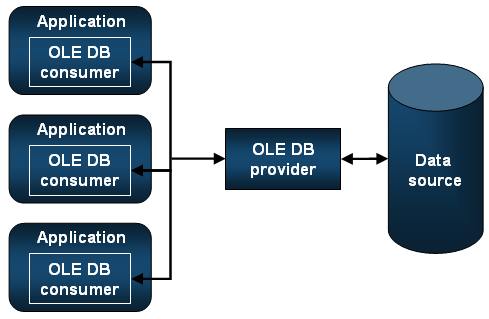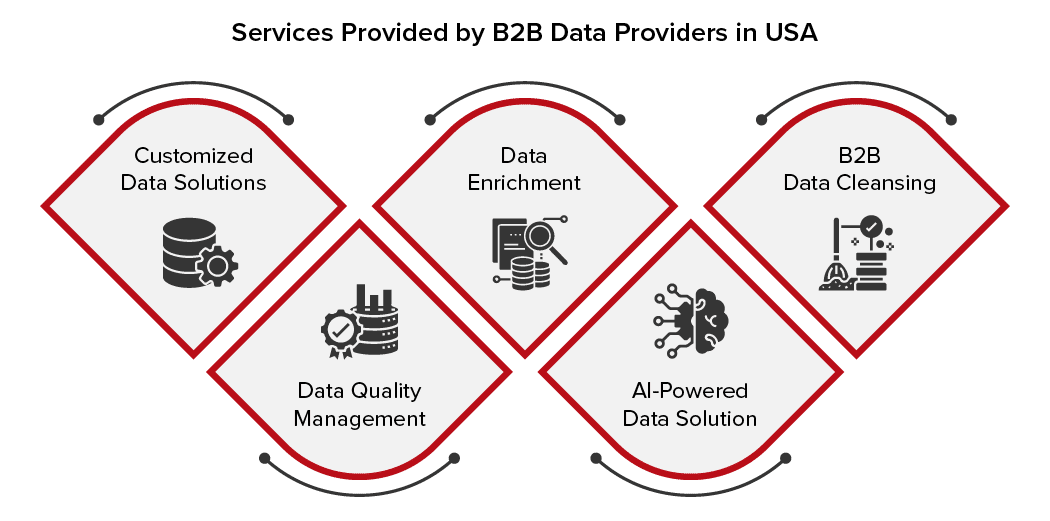Leading Database Providers for Scalable Solutions in 2024
Key Functions to Seek When Selecting a Database Supplier
Selecting a data source copyright is a critical decision that can significantly impact your company's procedures and information monitoring strategy. Amongst the crucial attributes to take into consideration are scalability alternatives, which make certain that your system can adjust to growing demands.
Scalability Options
When picking a data source supplier, recognizing scalability choices is important to guaranteeing that the chosen solution can suit future development. Scalability describes the capability of a database system to increase its capability and performance in response to raised need. There are 2 primary kinds of scalability: straight and upright.
Vertical scalability, or "scaling up," entails boosting a single web server's resources, such as CPU, RAM, or storage. This method can be affordable and straightforward for smaller sized applications however may get to a restriction where even more upgrades are impractical or as well expensive.
Horizontal scalability, or "scaling out," entails adding more web servers to disperse the tons. This approach permits for greater adaptability and can fit substantial boosts in information volume and customer traffic (database provider). It is specifically useful for cloud-based data source services that can dynamically allot resources based upon demand

Safety And Security Measures

When evaluating protection actions, think about the application of encryption methods (database provider). Data-at-rest and data-in-transit security are necessary to guarantee that sensitive details stays protected, also in case of a safety violation. In addition, search for service providers that offer solid authentication devices, such as multi-factor authentication (MFA), to further boost gain access to control
Normal safety audits and conformity with market standards, such as GDPR or HIPAA, are a measure of a company's commitment to information protection. Moreover, inquire concerning their event feedback strategy; a robust plan can lessen the impact of any kind of potential safety incident.
Efficiency Metrics
Evaluating performance metrics is essential for organizations to make sure that their chosen data source supplier meets operational needs. Key performance metrics consist of response time, scalability, and throughput, which jointly identify the performance of database operations under varying lots.
Response time is vital, as it shows just how quickly the database can process queries and return results. Organizations must seek metrics that show average reaction times during height and off-peak hours. Throughput, usually measured in transactions per second (TPS), supplies insight into the database's capability to manage high quantities of demands without efficiency destruction.
Scalability analyzes the data source's ability to expand with the company's needs. A durable data source provider should demonstrate horizontal and upright scaling capacities, permitting smooth modifications as needs rise and fall. In addition, recognizing latency, specifically in dispersed systems, can assist organizations evaluate the responsiveness of the database throughout various geographical places.
Consumer Assistance
Trustworthy customer assistance is a foundation of reliable database management, offering organizations with the assistance required to solve issues and maximize efficiency. When selecting a data source company, assessing the level of customer assistance they offer is essential. A durable support group must include numerous channels of interaction, such as phone, email, and live conversation, guaranteeing that users can access aid whenever they need it.
In addition, responsive assistance teams that are offered 24/7 greatly improve the reliability of the database solution. Prompt action times and effective resolution of issues can substantially reduce downtime and increase total productivity. It is likewise advantageous to think about the schedule of dedicated support employees, who can provide customized support based upon a company's specific requirements.

Prices Framework
When considering a data source service provider, the rates structure is an essential factor that can substantially influence an organization's spending plan and overall technique. A versatile and clear rates model is necessary for aligning the data source costs with organization needs - database provider. Organizations must review whether the pricing is based on usage, click to read per customer, or a level rate, as each model can produce various economic implications gradually
It is very important to evaluate any type of added prices related to the service provider's services, such as information storage space costs, purchase prices, and support fees. Some suppliers might offer tiered pricing, enabling scalability as the organization grows, while others may impose stringent limitations that might end up being expensive as data demands enhance.
Additionally, companies must consider the long-lasting value of the database service. While lower initial prices can be enticing, they might not account for future upgrades, maintenance charges, or integration costs. Conducting a comprehensive cost-benefit analysis will help identify one of the most ideal prices structure that balances efficiency, assistance, and scalability, ultimately ensuring that the picked data source company aligns with the company's functional and monetary objectives.
Conclusion
In verdict, selecting try this a database copyright necessitates cautious factor to consider of numerous critical functions. Examining efficiency metrics enables the identification of effective data sources, and accessible client support boosts the total user experience.
Selecting a database supplier is a critical decision that can considerably influence your company's data and operations management technique.When choosing a data source supplier, recognizing scalability alternatives Check Out Your URL is crucial to guaranteeing that the selected service can fit future growth. When choosing a data source company, assessing the level of customer assistance they supply is essential.When considering a database service provider, the pricing structure is a pivotal factor that can considerably influence a company's budget plan and total approach. Conducting a comprehensive cost-benefit analysis will assist determine the most appropriate pricing structure that balances efficiency, support, and scalability, ultimately making certain that the picked database service provider aligns with the organization's financial and functional purposes.